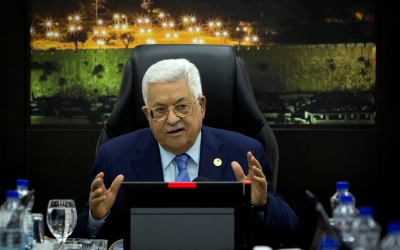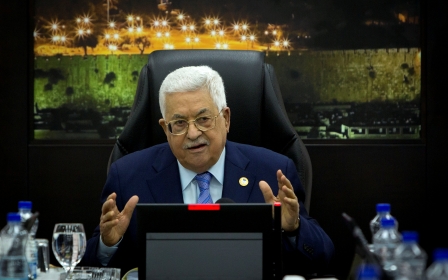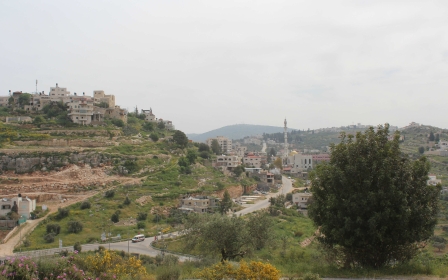EU officials propose compromise between Israel and PA over tax revenue dispute
European Union officials met on Tuesday in Brussels in a bid to forge a compromise between Israel and the Palestinian Authority (PA) over disputed tax revenues, as they bid to save the authority from financial disaster.
Israel collects around $175m each month in taxes on Palestinian imports and exports on behalf of the PA, but in February it said it would begin deducting around $11.5m from that amount.
Israel says the figure is equal to what the PA pays monthly to Palestinian political prisoners in Israeli jails, the prisoners' families, and the families of those killed by Israel.
However, PA president Mahmoud Abbas has said that the PA "will not receive any money from Israel if it’s incomplete”.
“Israel is trying to legitimise the deductions from the tax revenues by all means, but we will not concede,” he told a cabinet meeting on Monday.
Palestinian Foreign Minister Riyad al-Maliki said that the PA has three times returned the tax revenues, reported to be around $163m following the deductions, deposited in its bank accounts by Israel, which Israel had hoped would be quietly received despite the shortfall.
EU officials have suggested that the families of Palestinian prisoners, or those killed by Israel, receive stipends based on their financial state and not the crimes they committed, while affirming that their proposal “does not constitute a legal or political endorsement of Israeli deductions”.
The officials also proposed that the PA consider accepting the deducted amount of tax revenues "on a provisional basis" to save the PA from a potential fiscal and humanitarian crisis.
Struggling to survive
The total tax revenues collected by Israel account for more than half of the PA’s budget, and without its primary source of income, it has been paying partial salaries to employees, scaling back on services and increasing borrowing from local banks.
Tens of thousands of PA employees of the Ramallah-based government have been left out of pocket and are struggling to survive as the austerity measures are imposed to help balance the authority's books.
The law to deduct the funds was passed by Israel's parliament in July 2018, then put into effect in February.
According to data presented by Israeli defence officials, in 2018 the PA transferred $138.2m to Palestinian political prisoners in Israeli jails, the prisoners' families, and the families of those killed by Israel.
The law states that every year the defence minister will submit to the security cabinet a report summarising the transfer of funds from the PA to the families involved.
This amount will be divided by 12, and the consequent sum will be withheld from the subsequent monthly transfers of tax payments that Israel makes to the PA.
On Sunday, Israeli Prime Minister Benjamin Netanyahu and Finance Minister Moshe Kahlon reportedly held talks to find a solution for the crisis and discuss emergency plans in the event of financial collapse in the occupied West Bank.
The dispute has impacted payments to some 170,000 civil servants, whose salaries add up to $2.5bn, making up $14.5bn of the PA’s GDP.
The World Bank warned in an April report that the real GDP growth of the Palestinian economy is projected to hover around 0.5-1.6 percent between 2019 and 2021.
Middle East Eye propose une couverture et une analyse indépendantes et incomparables du Moyen-Orient, de l’Afrique du Nord et d’autres régions du monde. Pour en savoir plus sur la reprise de ce contenu et les frais qui s’appliquent, veuillez remplir ce formulaire [en anglais]. Pour en savoir plus sur MEE, cliquez ici [en anglais].





